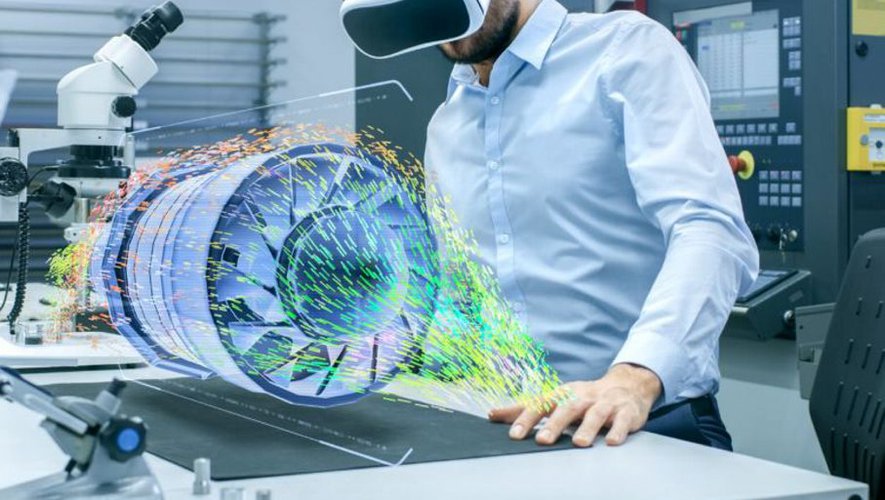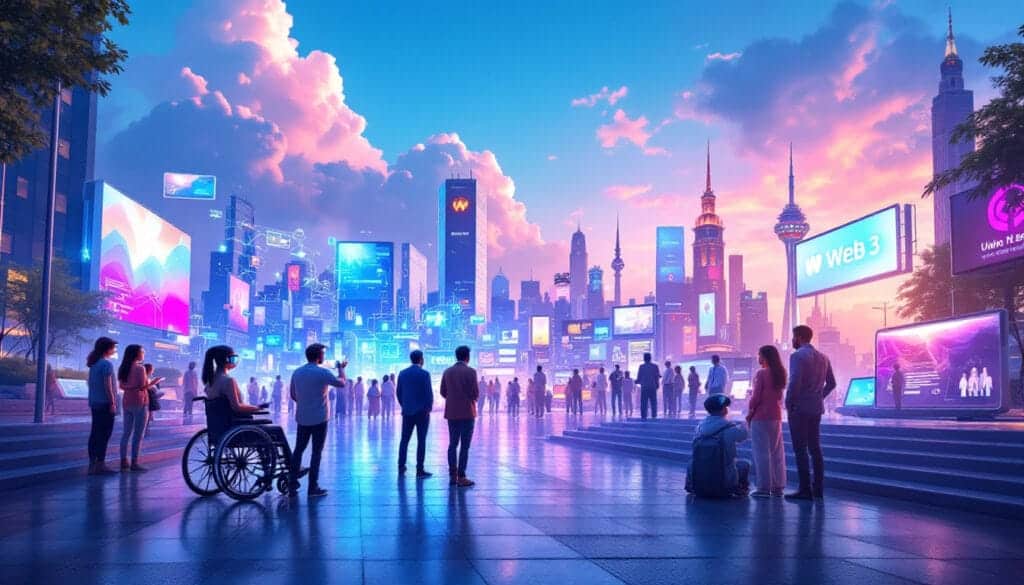The industry of the future, also known as Industry 4.0 in France, represents a major advancement towards the modernization and transformation of production tools. This national program aims to propel the French industrialized economy into a new era of innovative and job-generating activity. By integrating emerging technologies such as additive manufacturing and augmented reality, the factory of the future seeks to make industry more connected and competitive. Companies are encouraged to adapt their organization to manage this social transformation, a strategic opportunity that could reposition France in the global competition. Key issues include ensuring quality production with a particular focus on operator safety while leveraging the benefits of digitization and artificial intelligence.
Table des matières
ToggleGlossary on the Industry of the Future: Definition and Challenges
Industry of the future: The industry of the future is a concept that refers to the transformation and modernization of the industrial economy through the integration of new technologies and production methods. In France, it is also a national program aimed at modernizing production tools and improving companies’ competitiveness in the face of globalization. The expectations focus on the creation and maintenance of a strong, innovative, and job-generating industry.
Industry 4.0: Also known as the fourth industrial revolution, Industry 4.0 results from the integration of new information and communication technologies into industrial processes. This includes the Internet of Things (IoT), artificial intelligence (AI), and digital twins that enable process optimization. This new paradigm is characterized by more connected and automated production.
Factory of the future: The factory of the future, a key concept of Industry 4.0, relies on the integration of advanced technologies such as additive manufacturing (3D printing) and augmented reality to enhance productivity and production quality. Modern factories are becoming spaces where technologies and humans coexist to co-create high-quality products while ensuring the safety of operations.
Smart contracts: Smart contracts or intelligent contracts are computer protocols that facilitate, verify, or enforce the negotiation or execution of a contract in an automated manner. Through blockchain technology, these contracts enable efficient supply chain management by ensuring the reliability of transactions and exchanged information.
Predictive maintenance: This technique is based on data analysis and predictive modeling to anticipate failures and optimize the maintenance of industrial equipment. It helps reduce operational costs and increase efficiency by minimizing production interruptions. Real-time data collected through connected sensors are a major asset in this approach.
On-demand manufacturing: This production model consists of producing goods based on specific customer demand, thereby reducing inventory and waste. Flexibility is at the heart of this concept, allowing companies to adapt their production lines to changing market needs. This requires an agile and efficient technological infrastructure.
OPC-UA: The OPC-UA standard (Open Platform Communications Unified Architecture) is an interoperability standard that allows different systems and devices to communicate with each other in an industrial environment. It plays a critical role in optimizing processes by providing secure and reliable communication between the various technologies implemented in modern factories.
Digital twins: Digital twins are virtual replicas of products, processes, or physical systems, using real-time data to simulate, analyze, and optimize performance. These digital tools are essential for innovation and strategic decision-making, and their market is expected to see significant growth in the coming years.
To dive deeper into the future of industry, discover the projected growth trends here.

FAQ on the Industry of the Future: Definition and Challenges
Q: The industry of the future is a national program in France aimed at modernizing production tools and transforming companies to make them more competitive and connected.
Q: The challenges include greater connectivity, improving competitiveness, integrating new technologies such as additive manufacturing and augmented reality, as well as ensuring the safety of operators.
Q: Industry 4.0, also referred to as “the industry of the future” in France, aims to develop a strong, innovative, and job-creating industrial activity by integrating advanced technologies.
Q: The technologies include additive manufacturing, augmented reality, digital twins, the Internet of Things (IoT), and artificial intelligence.
Q: A transformation of company organization is necessary, involving a social transformation and the adoption of new collaborative and agile working methods.
Q: The main objective is to enable France to remain competitive globally by modernizing its production tools and increasing its innovation capacity.
Q: The benefits include more efficient production, better product quality, more reliable supply chain management, and job creation in the technology sector.





